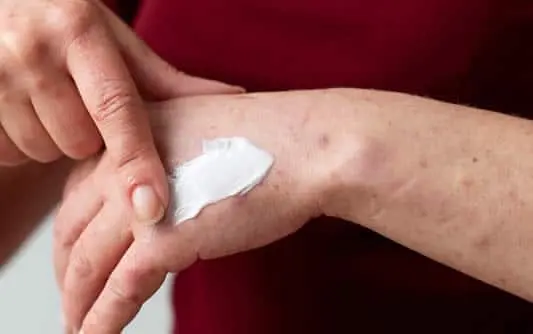Tackling Eczema Flare-Ups
Collaborate with your physician to identify suitable treatments tailored to your needs. Factors such as your symptoms, age, family medical history, existing health conditions, and lifestyle play a pivotal role in determining the most effective treatments. While most eczema treatments provide temporary relief, options such as steroid creams, topical calcineurin inhibitors like pimecrolimus (Elidel) or tacrolimus (Protopic), hydrocortisone cream (available over the counter), and Eucrisa ointment can alleviate itching and inflammation. For severe outbreaks, applying steroid cream followed by a wet bandage can promote healing. Light therapy, whether from natural sunlight or a UV ray device at a medical facility, may also alleviate symptoms. Oral antihistamines like diphenhydramine can offer relief from nighttime itching, while cetirizine, fexofenadine, and other non-drowsy antihistamines can alleviate flares and itching. In cases of moderate to severe eczema unresponsive to topical treatments, injectables such as dupilumab (Dupixent) or tralokinumab (Adbry) may be prescribed, administered every few weeks. Alternatively, upadacitinib (Rinvoq), a once-daily oral medication, can rapidly reduce itching. It’s essential to work closely with your doctor to manage eczema, as prolonged or excessive use of certain medications, such as steroids, may lead to side effects.
Prevent Flare-Ups, Enhance Well-Being
Various triggers can precipitate eczema flare-ups, which may vary among individuals. Identifying and mitigating these triggers can significantly improve your skin’s condition.
Combat Dryness
If your skin becomes excessively dry, it may become rough and itchy, potentially leading to cracks that permit the entry of bacteria or allergens. Dry skin commonly triggers eczema in many individuals, exacerbated by extreme temperature fluctuations. Tips include maintaining skin moisture, especially during dry winter months, by using a humidifier in your bedroom and applying moisturizing cream or ointment post-shower. Additionally, consider soaking in a warm bath with bath oil or colloidal oatmeal to relieve itching and moisturize the skin.
Avoid Irritants
Everyday products such as soap, cleansers, laundry detergent, and even certain foods can irritate the skin and trigger eczema rashes. Consult your doctor to identify potential irritants and consider using products free from added perfumes or dyes.
Choose Skin-Friendly Clothing
Fabrics that are abrasive, excessively tight, or itchy can exacerbate eczema symptoms. Opt for soft, breathable clothing that keeps your skin cool and comfortable, avoiding materials like wool if they cause irritation.
Minimize Environmental Triggers
Particles in the air, such as dust, smoke, pet dander, or sand, can aggravate eczema. Maintain cleanliness in your home or workspace, avoid smoking, and seek professional advice if you suspect allergies to pet dander.
Manage Stress
Stress and anxiety can exacerbate eczema symptoms, creating a cycle of discomfort and tension. Practice relaxation techniques, prioritize adequate sleep, and consider complementary therapies like aromatherapy or massage to alleviate stress and promote skin health.
Schedule a appointment with Dermatologist in Chatsworth.


